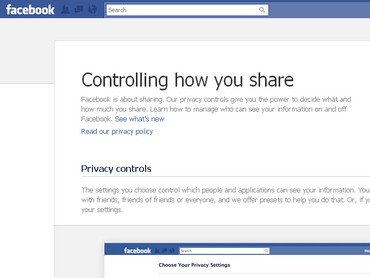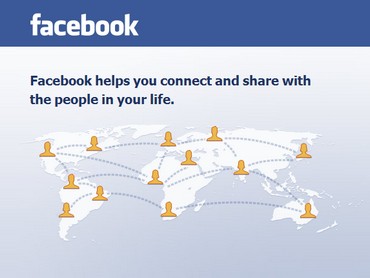
Facebook's CEO, Mark Zuckerberg, after the spate of recent concerns and outcries, announced the social networking site's latest privacy and security settings in Palo Alto yesterday. Acknowledging that a "lot of people are angry with us (Facebook)", Zuckerberg announced a new, "simpler way to control your information". This unfortunately amounts to nothing more than an opt-out feature, which allows users to choose who will see which content, whether it's just friends, friends of friends, or everyone (including third parties or partner sites).
Zuckerberg says this will give Facebook's users "more control" over what they share, and optimistically, feels that this will make them "want to share more".
Choices, choices, choices -- life is filled with them, and so is the Internet. It seems though that some web companies want to help you out by making some of these decisions for you. They say if you don't like what they decide, you can always opt-out.
Opt-out, instead of opt-in a debate that appears to be as polarised as any out there, with end-users on one side, and networking sites on the other. Things are not so black and white though.


This can be seen with Facebook, and its efforts in trying to personalise the site to each individual's tastes and preferences, to bring them only what interests them, they have run around time and again, falling off the fence between providing personal information to third parties (required for their vision of personalisation/individualisation to work) and users who want to protect their privacy.
While none of us are very happy going through a long list of controls to 'configure' our own privacy, many have unfortunately learnt from experience that one cannot trust their service providers implicitly. Security gaffes have been made by many parties in the recent past, with user ID and sensitive personal information leaking out, but we should remember that these companies do take the security and privacy of their users' information seriously, and are making all efforts to close any holes, and provide something more solid than just an illusion of safety.
All that remains for one to question, is if relevant advertising and searches are really for you, with it comes the bludgeoning reminder that those sites you use daily are indeed not non-profit organisations, and that hiring the best engineers and marketing professionals in the world is definitely not cheap. Charles Nicholls, the founder of SeeWhy.com, blogged his views on Zuckerberg's announcement and the recent controversies surrounding social networking sites, reminding us that sites like Google and Facebook (serving nearly half a billion people) aren't free to run, and require some rather hefty resources.
Read on to know more about the motive behind Facebook's settings, and the various reactions, including ours...

So the motive behind sharing your tastes and preferences isn't as sinister as you'd imagine, rather, it's quite mundane: Money. Facebook would rather get paid more by increasing the odds of you succumbing to their 'personalised advertising', and so would Google. Before you take a lofty stance however, remember that you don't get to decide how much profit is too much, or whether Google or Facebook should offer relevant advertising with Cost-Per- altogether? Well, you will have to pay for that! Get a Premium account on Apps, and your Gmail will not have ads.

Back to Facebook's new settings: an interesting feature will surely placate Facebook's wary users, enabling them to apply these new settings "retroactively". This allows them to protect the information that might still be visible in previous status updates and posts by them.
While this might be great, the reactions to the move are mixed. Many feel that the change has come a little too late, after people have already lost trust in the site and become somewhat paranoid about having to "plug the leak" every time new privacy settings are announced. Most however, are relieved, and thank Facebook for finally "listening".
We on the other hand are disappointed that the only real change is in the interface, which is simpler, but limited, forcing you to change settings each time you want to share something with everyone, which you had previously shared only with a certain group. We would have liked to opt-in for sharing information each time, rather than opt-out or change our settings each time we post or upload content. This is idealistic though: we can't expect Facebook to give up the 'sharing with everyone' option or the basic directory information and the extra money these bring the company, just so we, the end-users, don't see 'relevant' ads. Unless of course, we paid to use the service. For absolute privacy, like everything else in the world, is not free.